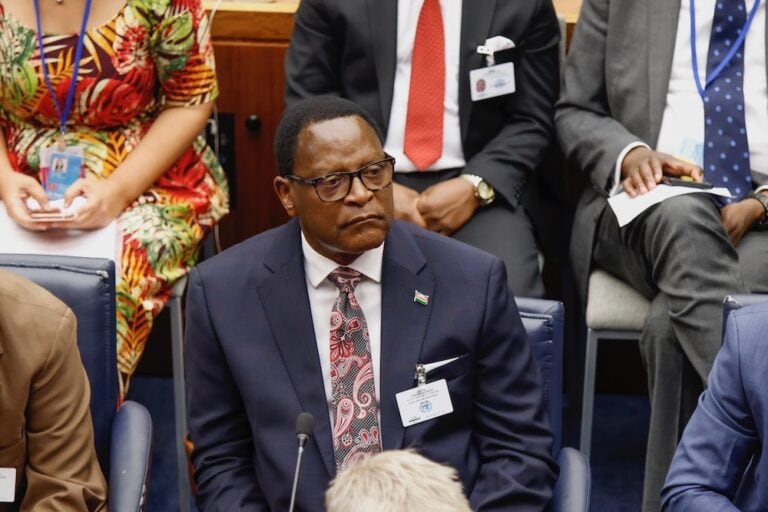(MISA/IFEX) – On 7 July 2009 Malawi’s police in the capital, Lilongwe, arrested Gabriel Kamlomo, editor for Zodiak Broadcasting Station (ZBS), a privately-owned radio station. Kamlomo is accused of misleading a police officer and causing public alarm by broadcasting what the police say is an alleged false murder case. The following day, the Lilongwe Magistrates’ […]
(MISA/IFEX) – On 7 July 2009 Malawi’s police in the capital, Lilongwe, arrested Gabriel Kamlomo, editor for Zodiak Broadcasting Station (ZBS), a privately-owned radio station. Kamlomo is accused of misleading a police officer and causing public alarm by broadcasting what the police say is an alleged false murder case. The following day, the Lilongwe Magistrates’ Court granted bail to Kamlomo.
According to information gathered from the police and management at the radio station, Kamlomo was arrested following a news article broadcast by the station on 3 July in which two unidentified women said they had been hired to prepare a mutilated body with missing body parts in Lilongwe. The story did not state whether the women worked for the police, a funeral home or a hospital.
MISA-Malawi is told that that the story surfaced in December 2008 and for several months the station had been trying to no avail to get the police’s side of the story. Kamlomo, however, managed to interview the central region Police Public Relations Officer, John Namalenga, who claimed that they had investigated the issue and concluded that it was a false story. The station nevertheless went on to report the story while giving the perspective of the police.
Apart from allegations of broadcasting a false story, Zodiak’s station manager Mathias Manyeka told MISA-Malawi that the police also accuse Kamlomo of attacking the police by insinuating that they [the police] were not interested in investigating the murder case.
“ZBS has been investigating the story since December last year. We allowed Gabriel to air the story on July 3, following reluctance by the police to investigate the incident,” said Manyeka.
When contacted for comment, Namalenga claimed that Kamlomo broadcast the story despite being warned that it was “false”.
“The police told Kamlomo that the information he had about the alleged dead body with some body parts missing was false. We even advised him not to air the story because police investigations revealed that the information he had was not true,” he said.
According to Namalenga, Kamlomo was picked up by the police for questioning on grounds that he gave false information to a police officer. The police have even accused Kamlomo of causing public alarm by airing the story.
Meanwhile, MISA-Malawi has condemned Kamlomo’s arrest. In a statement signed by its Chairperson, Brian Ligomeka, MISA-Malawi described the action taken by the police as strange and at the same time an infringement on media freedoms.
“The police have often been calling for tip-offs from the general public to help them in fighting and combating crime. If they are arresting journalists who are supposed to be public watchdogs, how do they expect whistleblowers to be providing them with information?” reads part of the statement.
Delivering her 8 July ruling on Kamlomo’s bail application, Lilongwe Resident Magistrate Vikoshi Ndovie said that the state had failed to prove that the accused would interfere with investigations if he were to be granted bail. The state, represented by Lilongwe Police Head of Prosecutions, Levison Mangani, had objected to the granting of bail, arguing that Kamlomo could interfere with investigations. He asked the magistrate to allow Kamlomo to be kept in custody for five days. The case will resume on 12 August 2009.
As part of his bail conditions, the magistrate ordered Kamlomo to report to the police every fortnight, to pay a bail bond of K10,000 (approx. US$72) cash and K20,000 (approx. US$144) non-cash as surety.
Kamlomo’s arrest attracted a lot of attention from both the media and members of the public, who packed the court room in the afternoon of 8 July.


